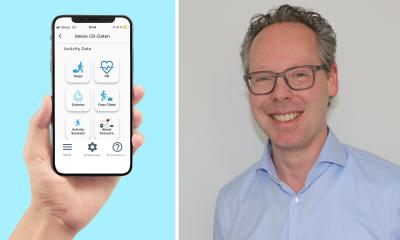The Renewing Health European project
Renewing Health is the Veneto Region’s response to the third Call of Proposals by the European Information Communication Technology Policy Support Programme (ICT-PSP). The project, which falls under the ICT-PSP financing plans, aims to facilitate the use of ICT-based solutions and services for citizens, the government, and businesses, as well as aiding their diffusion throughout Europe.

Begun in February 2010, the 32-month project has a total budget of €14 million, 50% of which is co-funded by European Union.
The Veneto Region is coordinator of the nine European Regions involved in the Renewing Health project. Along with Regione Veneto, these include the Syddanmark Region (Denmark), Northern Norway Regional Health Authority (Norway), South Karelia Social and Healthcare District (Finland), Norrbotten County Council (Sweden), Catalunya (Spain), Central Region (Greece), Carinthia (Austria) and the State of Berlin (Germany).
Its goal is to evaluate, through a systematic and common method, the use of the Personal Health System (PHS) and telemedical services that monitor patients with cardiovascular disease (CVD), chronic obstructive pulmonary disease (COPD) and diabetes. The term PHS means both the wearable/portable devices used to monitor some clinical parameters and the integrated telemedicine services for the remote data control. The study, based on large scale pilot trials, aims to provide objective results on the effectiveness of the assessed services and promote their broader diffusion.
MAST (Model for Assessment of Telemedicine), the methodology used for evaluation, is based on Health Technology Assessment principles; its general structure follows the Core Model of the EUnetHTA project.
The telemonitoring services included in the project, already existing or in a pilot phase, have been designed to give patients a central role in the management of their own diseases, fine-tuning the choice and dosage of medications, and help to detect early signs of worsening in the monitored pathologies. The analysis of these services will be based on two different organisational models: in the first, the patients themselves will use the devices for data collection, while in the second, the home caregivers will carry out the measurements.
The expected results are of an economic nature, because the project will allow a containment of the healthcare expenditure while improving the quality of service to the patient; of technological nature, through the large-scale validation of telemedicine systems; but mainly of clinical nature, thanks to the assessment of the system’s clinical efficiency. In order to guarantee the validity of the results, some important ‘Actors’ are involved:
• E-health competence centres for each country: Arsenàl.IT – Veneto’s Research Centre for e- Health Innovation (Veneto Region), Medcom International (Syddanmark), Lulea Tekniska Universitet (County of Norrbotten), Norwegian Centre for Integrated Care and Telemedicine (Norway), Catalan Agency for Health Technology Assessment and Research (Spain), VTT Technical Research Centre (Finland), e-Trikala SA – Telecare Centre of the Municipality of Trikala (Greece), TSB Innovationsagentur Berlin GmbH (Germany), KABEG (Austria).
• The User Advisory Board, the committee representing the different categories of users of the services foreseen in the context of Renewing Health: patient and healthcare professionals.
• The Industrial Advisory Board, consisting of a team of experts in several fields, e.g. management of clinical data, standards, open sources, business trends in the personal health system sector and semantic integration.
07.07.2010




